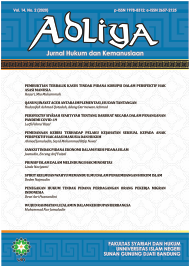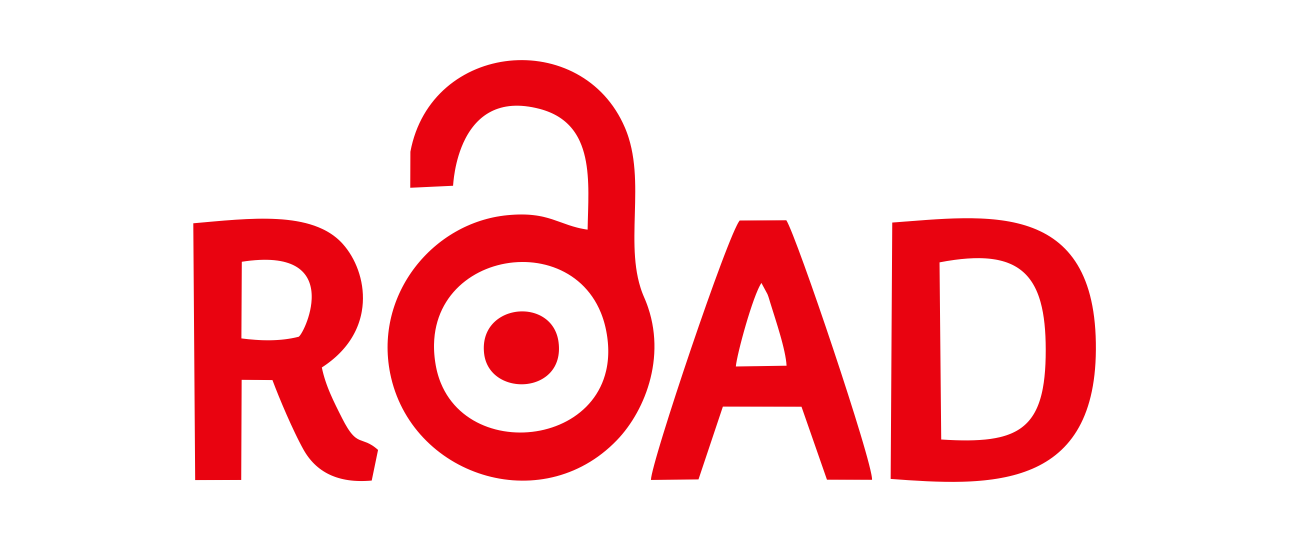PEMIDANAAN KEBIRI TERHADAP PELAKU KEJAHATAN SEKSUAL KEPADA ANAK PERSPEKTIF HAK ASASI MANUSIA DAN HUKUM ISLAM
DOI:
https://doi.org/10.15575/adliya.v14i2.10135Keywords:
Chemical Castration, Conviction, Human RightsAbstract
Sexual crimes in Indonesia have become increasingly worrying, especially against children, efforts to protect child victims by the government with Perpu No.1 of 2016 which has been passed into Law Number 17 of 2017 concerning child protection. This Perpu provides for additional regulations with castration for sexual crimes against children. The making of this policy was tinged with pros and cons because it was not in accordance with the objectives of punishment and Islamic law. The research method used is normative juridical with quantitative analysis. The purpose of this research is to see the view of the purpose of the punishment of chemical castration which is released to perpetrators of sexual crimes and to see and explain the Islamic legal views of the act of castration. The results of this study are First, the implementation of castration is an act of violence and contrary to the 1945 Constitution, namely Article 28 G paragraph 2 and Article 33 paragraph 1 of Law No. 39 of 1999 concerning Human Rights. Both Islamic Laws do not speak in writing about castration. The castration penalty stipulated in Law 17 of 2016 is a prohibition which is categorized as a punishment for takzir, because it is made by the state or leaders to overcome sexual crimes against children. The conclusion of this research is that first, castration punishment is a punishment that can violate human rights. Second, castration punishment in Islam is categorized as takzir punishment.
References
Arief, Basrief. “Dimensi Keadilan Dan Kepastian Hukum Kaitannya Dengan Pembentukan Opini Publik Dalam Proses Penegakan Hukum Indonesia.†Institute For Legal & Constitutional Govarnmentm Jurnal, no. I (2010): 59.
Asqalani, Ibnu Hajar. Fath Al Bari Fi Syarh Shahih Al Bukhari. Jakarta: Pustaka Azzam, 2001.
Darsi, Halil Husairi. “Takzir Dalam Perspektif Fikih Jinayat.†Al-Qisthu Jurnal Kajian Ilmu-Ilmu Hukum 16, no. 2 (2019): 60–64.
Edmods, Zachary. “Analiziing the Sex Disparity in Chemical Castration.†Gender and Law Michigan Vol 19 (2012): 484.
Hartono, Wahyu Agus, and Puguh Dwi Hananto. “Perbandingan Hukum Pidana Kebiri Bagi Pelaku Tindak Kekerasan Seksual Terhadap Anak Di Beberapa Negara.†Recidive 2, no. No. 3 (2013): 290–300.
Hasanah, Nur Hafizal, and Eko Suponyono. “Kebijakan Hukum Pidana Sanksi Kebiri Kimia Dalam Perspektif HAM Dan Hukum Pidana.†Jurnal Megister Hukum Udayana 7, no. 3 (2018): 305–17.
Lamintang. Hukum Pidana. Bandung: Binacipta, 2015.
Mardiya, Nuzul Quraini. “Penerapan Hukuman Kebiri Kimia Bagi Pelaku Kekerasan Seksual.†Jurnal Konstitusi 14, no. No. 1 (2017): 215–33.
Muslim, Imam. Kitab Shahih Muslim. Bandung: Cv Penerbit Diponegoro, 2016.
Rachel, Messy, and Mariana Hutapea. “Penerapan Hukuman Tindakan Kebiri Kimia Dalam Perspektif Ham.†Jurnal Hukum Magnum Opus 3, no. No. 1 (n.d.): 30.
Riyadi, Eko. Hukum Ham Perspektif Internasional, Regional Dan Nasional. Jakarta: Rajawali, 2018.
Supriadi, Dkk. Catatan Kritis Atas Kebijakan Kebiri Bagi Pelaku Kejahatan Seksual Anak DI Indonesia. Jakarta: Institute for Criminal Justice Reform, 2016.
Syarifudin, Amir. Garis-Garis Besar Fiqih. Jakarta: Prenada, 2015.
Zamawi, Baharudin. “Aplikasi Teori Fungsi Interpretaso Jorge Je Gracia Tentang Hadist Kebiri.†Arief, Basrief. “Dimensi Keadilan Dan Kepastian Hukum Kaitannya Dengan Pembentukan Opini Publik Dalam Proses Penegakan Hukum Indonesia.†Institute For Legal & Constitutional Govarnment Jurnal. Edisi I, 2010: 59. Asqalani, Ibnu Hajar. Fath Al Bari Fi Syarh 2, no. No. 2 (2016): 401–25.
Downloads
Published
How to Cite
Issue
Section
Citation Check
License
Authors who publish in ADLIYA: Jurnal Hukum dan Kemanusiaan agree to the following terms:
- Authors retain copyright and grant the journal right of first publication with the work simultaneously licensed under a Attribution-ShareAlike 4.0 International (CC BY-SA 4.0) License that allows others to share the work with an acknowledgment of the work's authorship and initial publication in this journal.
- Authors are able to enter into separate, additional contractual arrangements for the non-exclusive distribution of the journal's published version of the work (e.g., post it to an institutional repository or publish it in a book), with an acknowledgment of its initial publication in this journal.
- Authors are permitted and encouraged to post their work online (e.g., in institutional repositories or on their website) prior to and during the submission process, as it can lead to productive exchanges, as well as earlier and greater citation of published work (See The Effect of Open Access).
















